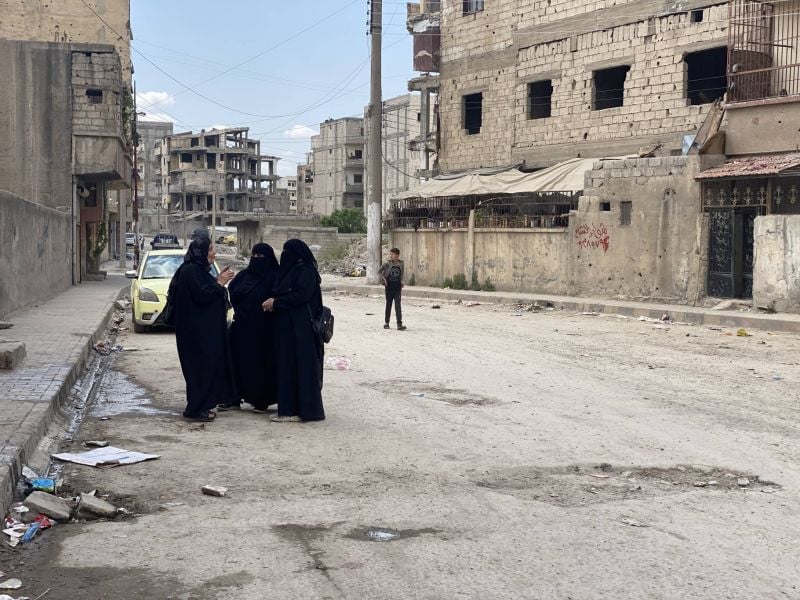
Najha, who works with the local NGO Oxygen, talks with two former wives of Saudi Islamic State fighters on a street in downtown Raqqa, on April 20, 2024. (Photo by Céline Martelet.)
In 2014, the jihadist group IS brought terror to the eastern Syrian town of Raqqa, where fighters from around the world settled and married Syrian women. Some of these women adopted the group’s ideology. Now, viewed as complicit in terror, they are struggling to be accepted in their communities.
OLJ / By Céline MARTELET, 12 June 2024 17:26

Najha, who works with the local NGO Oxygen, talks with two former wives of Saudi Islamic State fighters on a street in downtown Raqqa, on April 20, 2024. (Photo by Céline Martelet.)